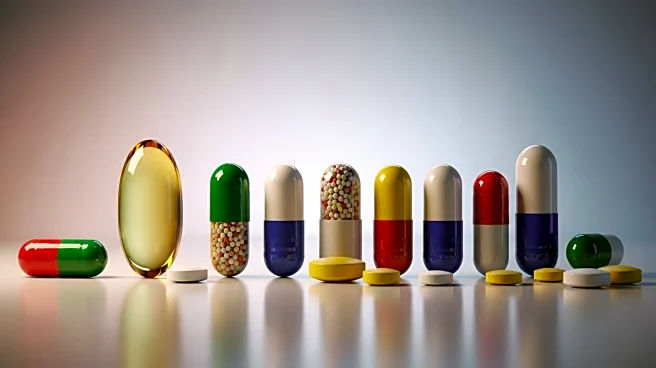What's Happening?
The U.S. government, under President Trump, has announced a 100% tariff on imports of branded drugs starting October 1, unless the manufacturers have initiated U.S. manufacturing operations. This move has prompted reactions from the European Union and Japan, who have expressed confidence in securing limits on these tariffs. The tariffs will impact several patented medicines from Asian and European drugmakers, including products from Japan's Eisai, Kyowa Kirin, and Germany's BioNTech, among others. These drugs are currently manufactured overseas in countries like Japan, Switzerland, and Belgium.
Why It's Important?
The imposition of tariffs on imported drugs could significantly impact the pharmaceutical industry, potentially leading to increased drug prices in the U.S. market. This move may encourage foreign drugmakers to establish manufacturing facilities in the U.S., potentially boosting domestic production and job creation. However, it could also strain international trade relations and affect the availability of certain medications in the U.S. market. The tariffs reflect ongoing trade tensions and the U.S. government's focus on encouraging domestic manufacturing.
What's Next?
Foreign drugmakers may accelerate plans to establish or expand U.S. manufacturing operations to mitigate the impact of tariffs. The pharmaceutical industry will be closely monitoring any further developments or negotiations between the U.S. and affected countries. The tariffs could lead to changes in supply chain strategies and pricing models for imported drugs.










